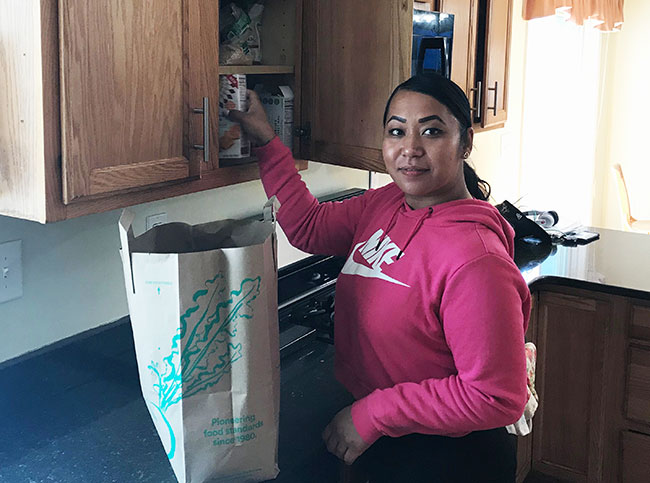Even when she was just 5 or 6 years old, Nin Chan displayed the extraordinary compassion, enduring patience and sunny disposition that has made her a standout in the field of human services.
Chan recalls her kindergarten schooling in Lowell when a classmate was not readily accepted by most of her peers because she had a disability and had difficulty speaking.
“I was always the first one to grab her hand and say, ‘I’ll be your partner,’ ” she remembers. “From then on, I realized that the smallest gesture could make a difference in somebody’s life.”
Since joining The Guild for Human Services in August 2015, the lead residential assistant at the Billerica House has been making a difference in the lives of the house’s five adult residents. Chan has forged a strong relationship with a 32-year-old nonverbal woman over the last four years.
“Chan treats her as a person, not as a person with a disability,” says Boris Fomo, associate director of adult residential services at The Guild. “She really takes the time to understand her wants and needs, and in that way she supports her best.”
Chan begins every day with the woman by offering the same warm greeting: “Good morning, beautiful lady! How are you doing today?”
The woman typically smiles or hums in response, and the two might start dancing. It establishes a positive tone for the day. The resident has come to trust Chan and treat her as family.
They enjoy taking walks and hikes, listening to music and participating in Community Engagement (CE) activities together. In fact, thanks to Chan’s influence, the adult resident has exceeded her Independent Support Plan goal of participating in 60 percent of CE outings; she now accompanies her housemates on nearly every CE.
“The work is difficult at times, but when our residents’ days go well, you really feel like you’ve achieved something,” Chan says. “I feel like I’m helping assist individuals be more productive and enjoy their lives more. It’s very satisfying work.”
Chan credits her parents, Cambodian immigrants Lun Nin and Bun Born, for instilling in her the need to in some way repay the country that accepted them.
“America opened its arms to us and gave us opportunities we would not otherwise have had,” she says. “I always felt it was my responsibility to give back to America for giving us a chance.”


